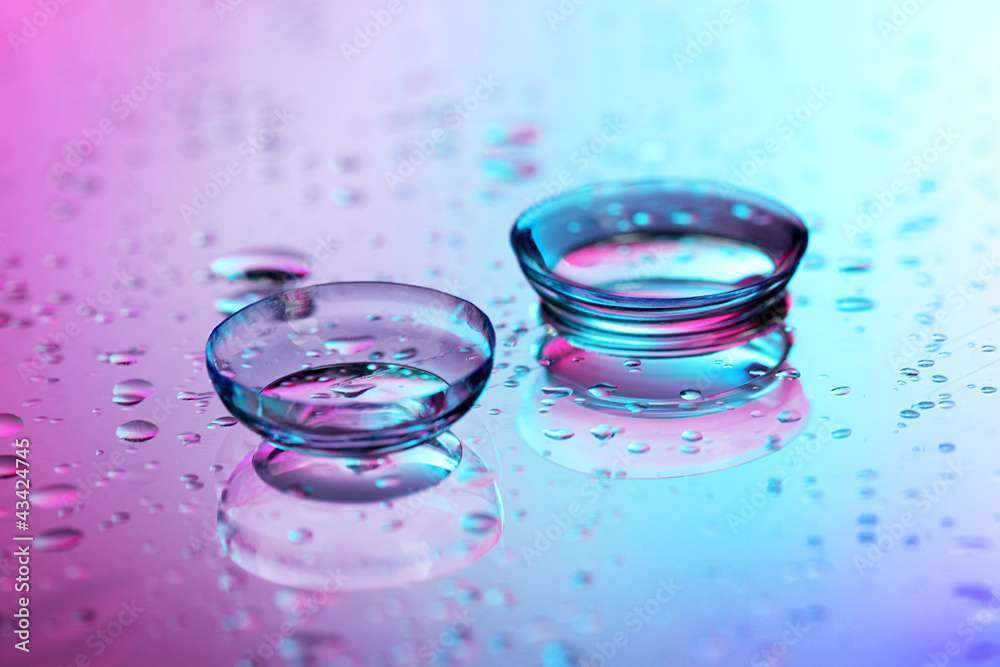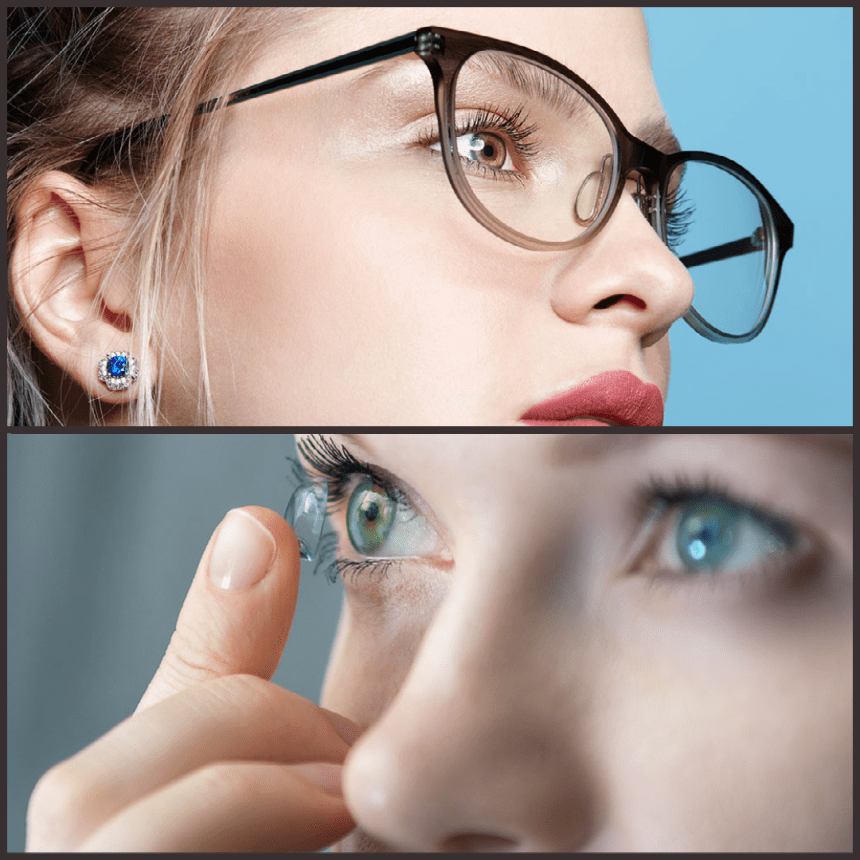Making the switch to contact lenses from glasses? While contact lenses offer a lot of freedom, there are a lot of things to consider when using them to their best advantage.
7 REASONS WHY CONTACT LENSES ARE BETTER THAN GLASSES

| FACTORS | GLASSES | CONTACT LENSES |
| 1. Field of vision | Restricted due to the frame | Wider field of vision |
| 2. Magnification | Lesser magnification. More noticeable to individuals with high refractive error. | Better magnification |
| 3. Prismatic effect | Image distortion when looking through lenses with high power | Doesn’t have prismatic effect |
| 4. Fogging | High humidity levels fog up the glasses | Doesn’t fog |
| 5. Optical quality | For lower powers, optical quality is excellent, but as the power increases, distortions and aberrations increase | Better optical quality for individuals with high power |
| 6. High spherical power, astigmatism and keratoconus patients | The vision correction provided by glasses is suboptimal for high refractive errors, particularly for keratoconus and astigmatism. | Useful in individuals with high refractive error and keratoconus. |
| 7. Playing sports | Not suitable | Suitable |
7 REASONS WHY GLASSES ARE BETTER THAN CONTACT LENSES

| FACTORS | GLASSES | CONTACT LENSES |
| 1. Cleaning and disinfecting | Daily cleaning and disinfecting is not required | Required to clean and disinfect after every use. Prone to infections if not cleaned properly and not replaced on time. |
| 2. Sleeping with glasses / Contact lenses | Safe | Not safe. Can increase the chances of infection and inflammation of the cornea. |
| 3. Learning curve | Not required | Requires some learning before starting off |
| 4. Digital eye strain | Glasses with blue filters can help avoid CVS or computer vision syndrome. | Working on a computer for long periods of time can result in computer vision syndrome. |
| 5. Corneal health | Doesn’t interfere with oxygen delivery to cornea. | Reduced oxygen to cornea can lead to corneal edema and vision problems |
| 6. Red eye | Unlikely | There are several possible causes, including infection, allergy, low humidity, hypoxia, dust or foreign particles, deposits on lenses that may irritate or trigger an immune response or lenses that do not fit well. |
| 7. Dryness in the eyes | Not seen | Seen with contact lens use resulting in foreign body sensation, reflex tearing and redness. |
HOW TO CLEAN CONTACT LENSES?
The importance of proper care of contact lenses is paramount to preventing infections and other problems, which can affect your eye health and long-term vision. Read 9 COMMON CONTACT LENS RELATED PROBLEMS

- Wash hands properly with soap and water and dry them with clean lint-free towel.
- In your palm, place your contact lenses and pour a disinfectant solution that your doctor has prescribed.
- Gently rub the lenses with the disinfectant solution for 20 seconds
- Now, without rubbing, rinse both sides for 10 seconds each with the solution.
- Place contact lenses in the case with contact lens solution and submerge them for 6 hours
- After 6 hours before wearing the lenses make sure to wash your hands again.
- Discard the contact lens solution and leave the case for air drying.
- When protein builds up in the contact lens case, clean it using your fingers and contact lens solution.
DOES CONTACT LENS AND GLASSES HAVE THE SAME PRESCRIPTION?
Not necessarily. For individuals with less than 4 D power, the difference is negligible, and they can have the same prescription, but for individuals with more than 4 D power, the minus power must be reduced and the plus power must be added depending upon whether they are near-sighted or far-sighted.
Contact lenses, positioned directly on the tear film of the eye, will have slightly less nearsighted power than eyeglasses since eyeglasses are usually about 12 millimeters from the eye.
This becomes significantly different with prescriptions of 4D or greater. Therefore a patient with a -4.5 D glass prescription will have a contact lens prescription of lower power such as -4.25D. Conversely, a patient with a +4.5 D glass prescription will have a +4.75 D prescription for contact lenses.
QUICK SUMMARY
The use of contact lenses is particularly beneficial to individuals with high refractive errors. If, however, someone wishes to have clear vision without having to compromise on the field of vision and constant adjustments then contact lenses are an excellent option. One must be aware of eye infections with improper use of contact lenses. In order to maintain good vision, good hygiene, regular cleaning, and disinfection of contact lenses are essential.

